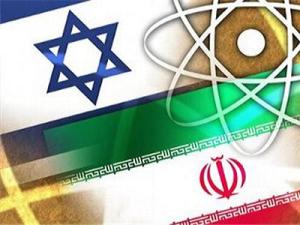 Israel’s president reached out to the Iranian people with a message of peace Wednesday, as the West tightened sanctions over Iran’s nuclear program, and a former Israeli spymaster said Israel is not in mortal danger.
Israel’s president reached out to the Iranian people with a message of peace Wednesday, as the West tightened sanctions over Iran’s nuclear program, and a former Israeli spymaster said Israel is not in mortal danger.
Shimon Peres, an elder statesmen who is a Nobel Peace laureate, appealed to the people of Iran to look beyond the current crisis.
The U.S., Israel and the West believe Iran is trying to produce nuclear weapons. Iran denies that. This week the U.S. cranked up its sanctions on Iran to try to force it to stop its uranium enrichment, but Iran responded with defiance.
Speaking at a ceremony marking the 63rd anniversary of the founding of Israel’s parliament, Peres directed his remarks to the people of Iran.
“We were not born enemies and there is no need to live as enemies. Do not allow the flags of hostility to cast a dark shadow over your historic heritage,” Peres said. “Your people are a sensitive people that aspire for friendship and peace, and not for conflicts and wars.”
Israel and Iran had close relations before the Islamic Revolution in 1979.
Peres spokeswoman Ayelet Frisch said he had fond memories of Iran then.
“Peres is one of the few people in Israel who remember the warm ties between the two countries. He visited a few times before the revolution, he walked the streets of Tehran, ate at restaurants there and had many Iranian friends,” she told The Associated Press.
In contrast to his message to the people, Peres denounced the Iranian regime.
“Iran is not only a threat for Israel, it constitutes a real danger to humanity as a whole,” Peres said about the Iranian nuclear program. “The present Iranian regime is Imperialism-hungry, aspiring to be the region’s supreme ruler,” he said.
Peres, 88, fills a mostly ceremonial post as Israel’s president. He spoke after U.S. officials expressed concern that Israel might attack Iran’s nuclear facilities in the spring. Israel’s leaders rank Iran as their greatest threat because of its nuclear and missile development programs, frequent references by its leaders to Israel’s destruction and support for violent anti-Israel groups like Hezbollah in Lebanon and Hamas in the West Bank and Gaza.
Earlier Wednesday, Meir Dagan, the former head of the Mossad spy agency said he does not believe Israel faces an existential threat from Iran, a view that contrasts with Israel’s prime minister and other leaders.
Since retiring a year ago, Dagan has become a surprisingly vocal critic, repeatedly and publicly accusing Israel’s top leaders of irresponsibly pushing for an attack on Iran.
At the launch of an electoral reform movement he chairs, he observed, “I don’t think there is an existential threat.” He did not specifically mention Iran, but the use of the phrase “existential threat” in Israel generally refers to Iran.
Although Israel says it hopes deepening economic sanctions will pressure Tehran to curb its nuclear ambitions, Israeli leaders haven’t ruled out military action, routinely observing that “all options are on the table.”
AP/ ABC

Leave a Reply
You must be logged in to post a comment.